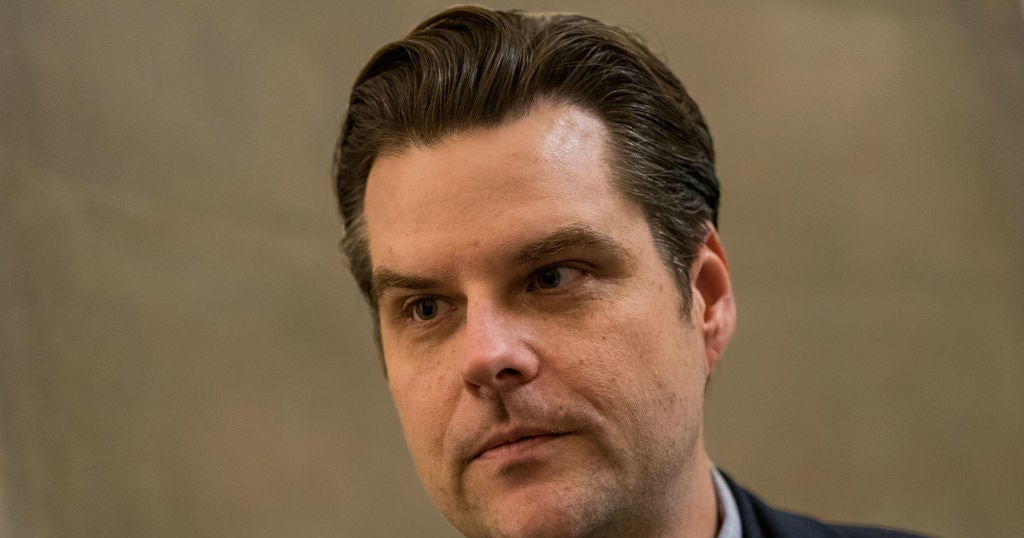Kare11
Here’s the difference between the REAL and enhanced ID
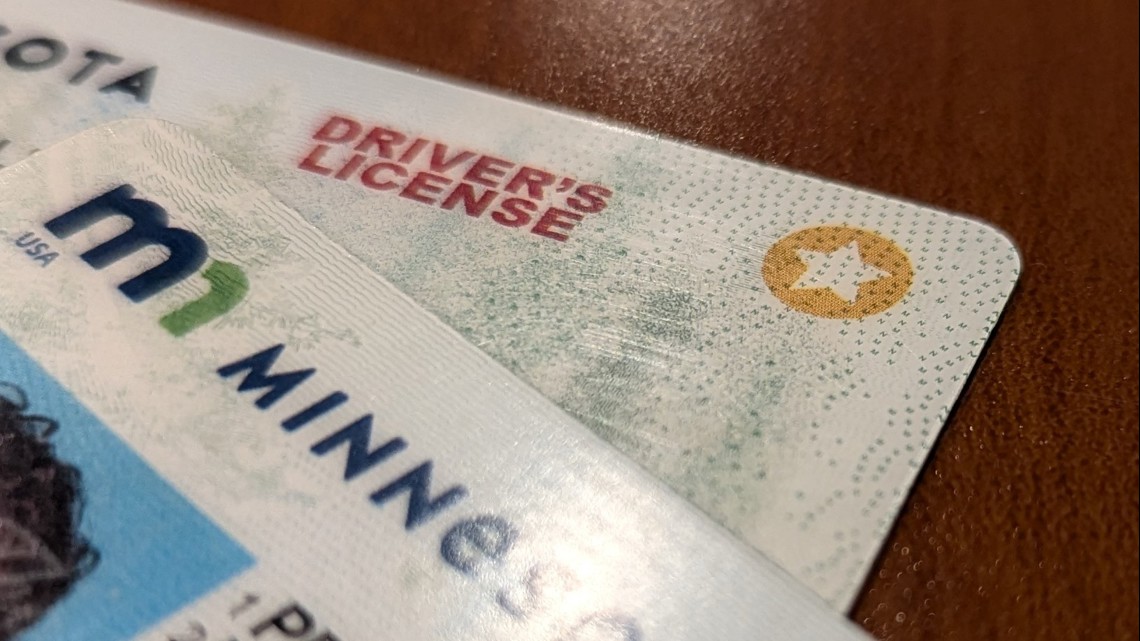
There is about eight months left before having a REAL ID is required in the U.S. if you want to fly.
MINNEAPOLIS — Over the past few years there has been a lot of talk about the REAL ID. If you’ve been to the DVS they might have asked if you wanted one, or even an enhanced ID. But what do these mean, and are they necessary to have?
If you plan to catch a domestic flight on or after May 7, 2025, you will be required to use a REAL ID. An easy way to know you’re holding a REAL ID is from the has a gold star.
The REAL ID Act dates back to 2005, with the original deadline being in 2016. That deadline has been pushed back multiple times, including in 2020 when the Department of Homeland Security said pandemic-related backlogs slowed states progress in issuing REAL IDs, VERIFY reported.
The requirement for REAL IDs to fly came from a 9/11 Commission recommendation. The goal is to have minimum security standards for state-issued driver’s licenses and identification cards, the Department of Homeland Security said.

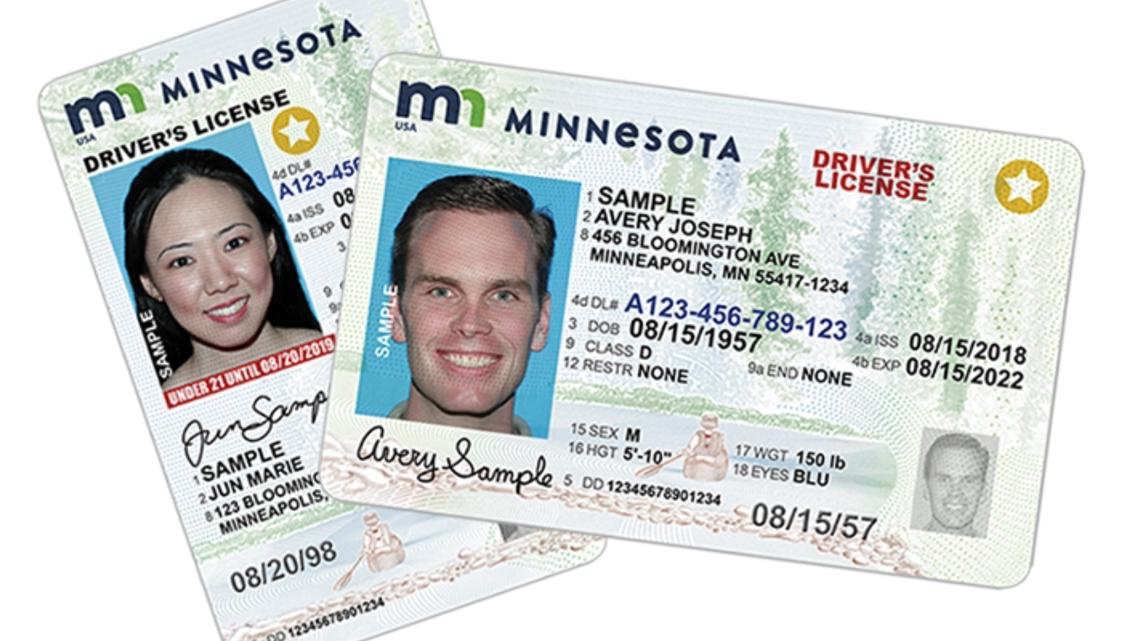
You do not need to have a REAL ID to drive or to vote. You also do not need the ID to apply for federal benefits, to access healthcare, or to take part in “law enforcement proceedings or investigations.”
You just need the REAL ID for federal purposes, namely flying. You also need one if you plan to enter a military base or nuclear facility.
But the REAL ID is not the only new identification card you can get. There is also the enhanced ID — one step above REAL.
The Minnesota Department of Driver and Vehicle Services describes the enhanced ID as “REAL ID compliant and offers the additional benefit of travel by land or sea to Mexico, Canada and some Caribbean countries.” So, think road trips or cruises instead of just domestic flights.
The REAL ID and enhanced ID are only issued to U.S. citizens in Minnesota, according to the DVS.
To get a REAL Id, you’ll need one document proving your identity, such as a passport of birth certificate. You will also need to know your social security number, and have two documents proving your current Minnesota residency. You can find more details on what you need to bring to the DVS here.
To get an enhanced ID, you need to have a document proving your date of birth, full legal name, social security number, photographic identify, U.S. citizenship, and two documents proving you’re a resident of Minnesota. More details on what you need to get an enhanced ID can be found here.
Again, the REAL and enhanced IDs are not required if you simply plan to use your ID to drive, prove your age, and vote.
Kare11
District 54A race officially headed for a recount
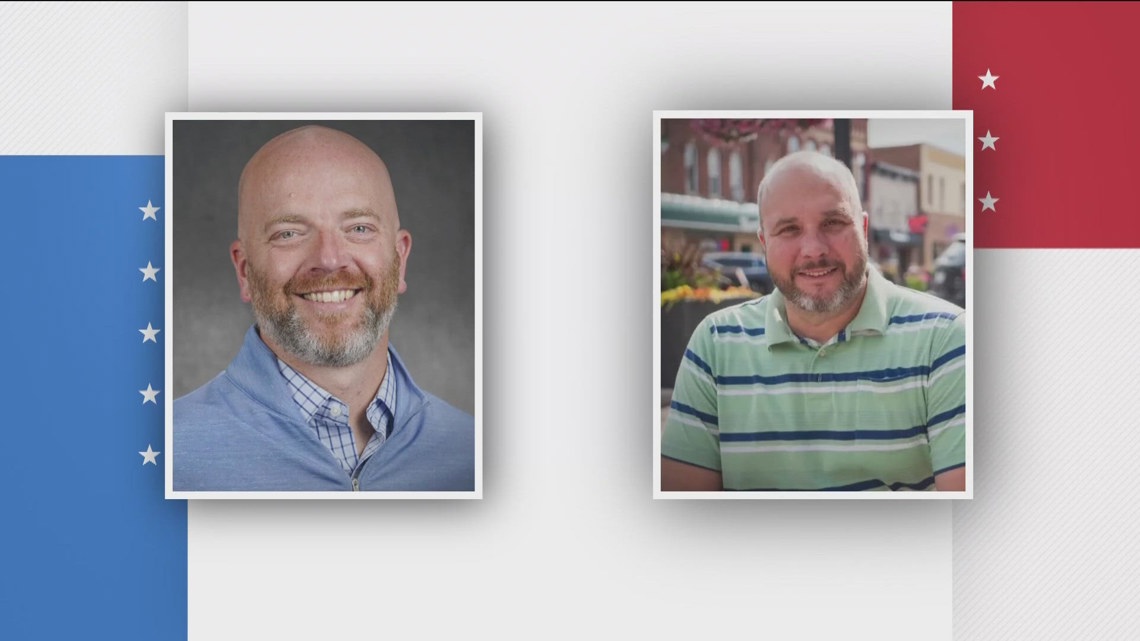

Democratic Representative Brad Rabke leads Republican challenger Aaron Paul by only 14 votes in Shakopee’s District 54A race.
SHAKOPEE, Minn. — A recount has officially been requested for the closest election in any Minnesota legislative district this cycle after the Scott County Canvassing Board certified the election results Wednesday afternoon. Democratic Representative Brad Rabke leads Republican challenger Aaron Paul by only 14 votes in Shakopee’s District 54A race.
This Scott County Canvassing Board meeting garnered a lot of attention not only because of how close the 54A race is, but because of 20 ballots in Shakopee precinct 10, that would directly impact the 54A race.
“We had 329 people check in to absentee vote, we received 309 ballots back,” said Scott County election official Julie Hanson.
Hanson says they will continue to audit and investigate the situation, but at the end of the day, the canvassing board’s job is to certify the ballots that they have received. Now that results have been certified by the county canvassing board, they will be sent to the Secretary of States Office to be certified there on Nov. 21.
“This is the system working the way it’s supposed to work,” said Minnesota Secretary of State Steve Simon. “The public and the political parties and the candidates can look and see and touch and feel and ask questions, and that’s exactly what we want.”
The state will cover the recount since the margin of victory is lower than .5%. That recount of 22,000 ballots will begin also on Nov. 21.
“There’s high degrees of transparency, and high degrees in terms of security in this process here,” said Hamline University Political Science Professor David Schultz.
Although Schultz feels recounts are important, he acknowledges they don’t have a history of actually changing the outcome.
With Democrats and Republicans tied at 67 seats a piece in the State House, if the recount were to flip the district 54A race in Republican Aaron Paul’s favor, it would change the entire balance of power in the State Legislature.
The House District 14B race is Sherburne County is also headed for a recount. Democratic incumbent Dan Wolgamott leads Republican Sue Ek by 191 votes. Due to an issue with results on election night, Sherburne County says they will cover the cost and hand recount the voters so there is complete transparency.
Kare11
Group overseeing MPLS consent decree to host community sessions


Two sessions will be held this week to allow residents to ask questions about a 4-year police and city reform plan released in September.
MINNEAPOLIS — In March last year, the City of Minneapolis and the Minnesota Department of Human Rights reached a court-enforceable agreement to reform city and police conduct after investigators found both entities engaged in practices violating the Minnesota Human Rights Act.
Effective Law Enforcement For All was selected to oversee the consent decree as an independent body in February this year, and in September released a nearly 90-page, 4-year plan on police cameras, trainings, how reports are taken and other policy changes.
ELEFA president David Douglass says the nonprofit organization will host two sessions this week to bring community up to speed on the plan. The first is set to begin at 6 p.m. Wednesday at Sabathani Community Center.
The second session will be held 6 p.m. Thursday at North Community High School.
“We also want to explain how we do what we do … and how to engage the Minneapolis community in this process because that was central to the agreement,” Douglass told KARE 11 ahead of the meeting. “Perhaps most important, our goal is to promote understanding so we want to hear back and have plenty of time for people to ask their questions.”
Douglass says ELEFA will issue a semiannual report in the coming weeks and will hold another community session in four months.
This all stems from George Floyd‘s murder, and a similar settlement is pending with the U.S. Department of Justice after its investigators found city and police conduct violated the constitution and federal law. Both parties agreed to resolve the findings through a court-enforceable consent decree with an independent monitor.
But former President Trump opposed federal consent decrees in his first term, calling them “a war on police,” and terminating one in Chicago. It’s unclear what will happen in his second term, but Minneapolis is still promising reform.
The Office of Community Safety sent the following statement in response to KARE 11 inquiry:
“While negotiations with the Department of Justice have continued without pause, tonight’s community engagement session hosted by ELEFA is their first opportunity to talk with the people of Minneapolis since their selection as the Independent Evaluator for the MDHR settlement agreement and the release of their Evaluation Plan. This engagement goes to highlight the work well underway to implement the Settlement Agreement with the State. City leadership has been and will remain committed to reforming policing in Minneapolis and building a more just, equitable approach to community safety – regardless of who sits in the White House.”
-Commissioner Todd Barnette, Office of Community Safety
The Minnesota Department of Human Rights shared a similar message:
“The state consent decree between the Minnesota Department of Human Rights and the City of Minneapolis and Minneapolis Police Department is here to stay regardless of what happens at the federal level.”
-Spokesperson, Minnesota Department of Human Rights
Kare11
Opponents, constituents react to tight House races
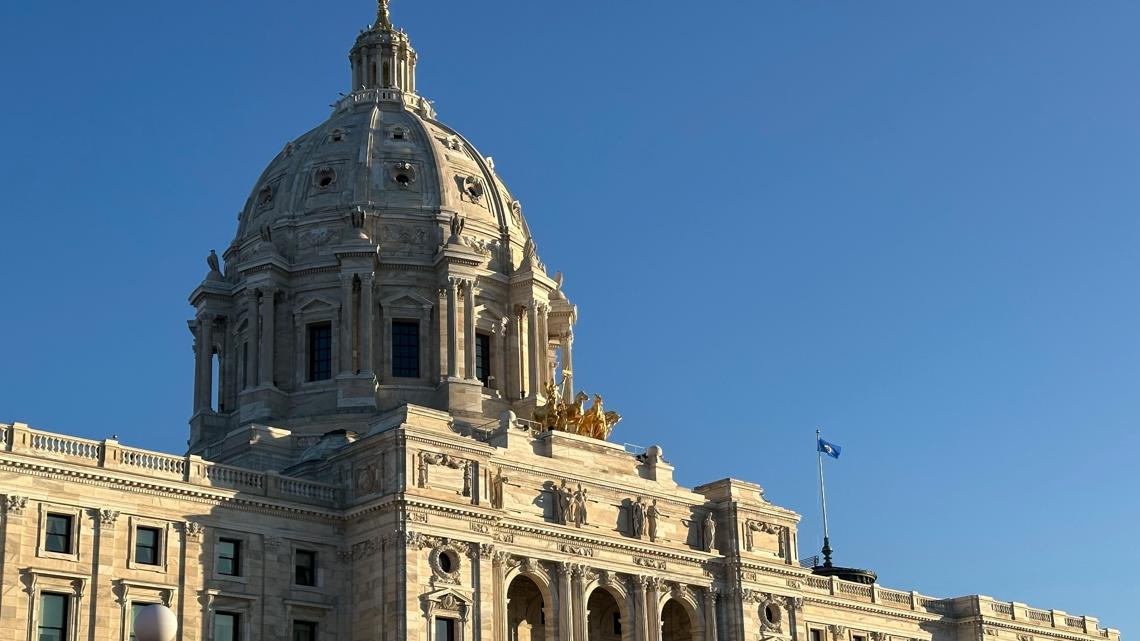

Community members say the tight results reflect changing opinions in their communities.
MINNESOTA, USA — Scott County certified the election results in a very close race in Shakopee, where incumbent democrat Brad Tabke beat Republican Aaron Paul by just 14 votes.
Paul has officially requested a recount in 54A, and now that process will begin.
That race is one of two Minnesota House races headed for recounts.
“It’s been up and down,” Paul said. “We’re preparing.”
The razor-thin margin falls within the threshold for an automatic recount under state law.
“I think people are just waiting to see what happens,” said Shakopee resident Collin Duff.
Duff says a lot of folks at Turtle’s Bar and Grill have been talking about it.
“I think everybody is tired of the way the world’s running, and we have to, we have to do it slowly,” said patron, Kathy Hoffman, who said these results show her community is looking for change
Meanwhile, in District 14B, DFL Rep. Dan Wolgamott now leads Republican Sue Ek by 191 votes after initial confusion on election night.
At one point, unofficial results showed Ek winning by four votes. Wolgamott later led by 28.
Sherburne County officials attributed the discrepancy to a memory card malfunction, but said no votes were lost or found. The county plans to conduct a hand recount at its own expense.
“There’s a huge effort to be sure that the votes counted were accurate, because it makes a big difference,” Ek said.
If current results hold, the Minnesota House would be evenly split between DFL and Republican members.
Buddy King, a District 14B resident, says the tight races reflect the state’s changing demographics,
“I’m not just talking racially, but just socially, economically, everything is growing,” King said. “And so I think what we’re seeing is the results of that.”
King’s wife, Keshia Anderson-King, hopes the DFL maintains its lead, citing concerns about education and support for LGBTQ and immigrant communities.
“Whether it be DFL or Republic, I just want it to be for the people,” she said.


